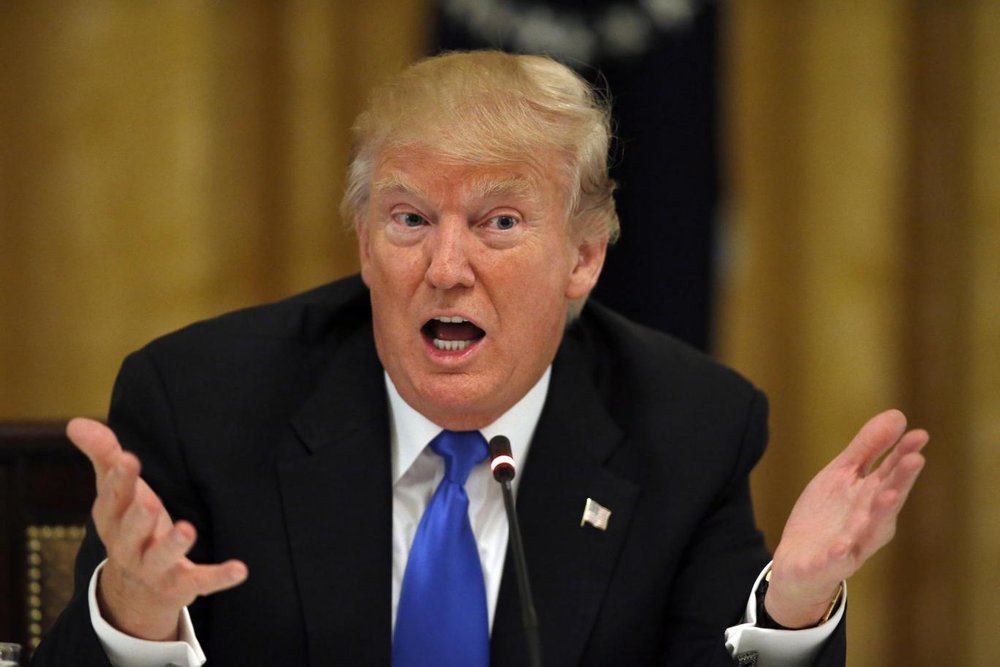Truth the first casualty in U.S. politics

The phrase "alternative facts" was first used by Kellyanne Conway, counselor to Donald Trump during a “Meet the Press” interview in January 2017.
Conway was answering the accusations that the White House Press Secretary had grossly exaggerated the size of the crowd that attended the presidential inauguration. Rejecting suggestions that the crowd estimates were a falsehood, Conway asserted: “Sean Spicer (former White House press secretary) gave alternative facts”. Immediately afterwards, the expression became a popular catchphrase in English-speaking nations to describe statements that are held or expressed either in complete ignorance or with a total disregard for truth.
The increased frequency in which political and opinion leaders, especially the current president of the United States, are circulating alternative facts in recent years is associated with the rise of post-truth politics which means rely blatantly on emotion- or opinion-based appeals rather than fact-based discussion.
Since Trump entered the White House, he has been repeatedly accused of “either intentionally lying or not knowing the difference between lies and truth."
In his seminal book ‘Truth in the Public Sphere’, Jason Hannan, professor of communication at the University of Winnipeg, writes: “Trump has displayed more contempt for truth and civility than any politician in American history.”
Iran deal and Trump’s disdain for the truth
As a candidate and a president, Trump has denounced the 2015 nuclear agreement known as the Joint Comprehensive Plan of Action (JCPOA) as "the worst deal ever negotiated". He has also claimed that Iran was "not living up to the spirit of the agreement."
Nevertheless, Trump and his cohorts’ disdain for the truth do not prevent falsehood of their statements repeatedly being exposed.
As a matter of fact, it was Trump’s White House not Iran, that has already violated not only the spirit but the letter of the JCPOA by openly and explicitly discouraging other countries from conducting normal business with Iran.
In an interview with CNN's Fareed Zakaria in New York on July 15 Iranian Foreign Minister Mohammad Javad Zarif said “Trump used his presence in Hamburg during the G20 meeting in order to dissuade leaders of other countries from getting engaged in business with Iran.”
Analysts believe that although Trump has so far not taken direct action to dismantle the nuclear agreement as one of his presidential campaign promises, he is slowly trying to pursue that objective by denying Iran the economic benefits of the accord through slapping new sanctions.
On July 17, the New York Times reported that Trump ‘reluctantly’ certified that Iran has complied with the 2015 agreement. A week later, in a speech to thousands of raucous supporters in Ohio, he warned Tehran to adhere to the terms of the nuclear or else face "big, big problems."
Trump has told the Wall Street Journal that he would be surprised if Iran is in compliance with the nuclear deal when recertification comes up again in three months.
According to Foreign Policy Magazine, Trump even “instructed a group of trusted White House staffers to make the potential case for withholding certification of Iran at the next 90-day review of the nuclear deal. Based on the Foreign Policy report, the goal was to give Trump what he felt the State Department had failed to do: the option to declare that Tehran was not in compliance with the contentious agreement.”
The truth that Trump denies is that the accord is working and according to the International Atomic Energy Agency—as the only accepted body with the mission to monitor the nuclear pact--- Iran is complying with its obligations under the agreement. Zarif told Fareed Zakaria that the “IAEA has verified--- I believe--- 7 times now since the implementation day (of JCPOA) that Iran has implemented the deal faithfully, fully and completely.”
Notwithstanding that how vigorously Iran observes the agreement, Trump seems impervious to fact and logic and is clearly looking for excuses to destroy the pact.
The new era of American politics
Iranian foreign minister has already complained about millions upon millions of dollars of money that is being spent to promote “misinformation” and “disinformation” and create “a version of truth that is acceptable to certain groups of people.”
Also speaking at the Council on Foreign Relations (CFR) in New York, Zarif said: “I believe there is a need under these circumstances, when people are bombarded with this type of less than truth, that—or more than truth in cases—like our (Iran) total control over Iraq—to hear the different side of the story.”
In that case, it seems today the truth is the first victim of politics in the U.S.
As Professor Hannan (2016) points out: “With the rise of Donald Trump, we have entered the twilight zone of American politics, a brave new world in which the norms of politics, journalism, and public discourse seem to have broken down.”
He adds, “If, as Clausewitz (famous Prussian general and military theorist) said, war is the continuation of politics by other means, perhaps the new era of American politics can be described as the continuation of war by other means—a war in which like all wars, truth is the first casualty.”
MH/PA
Leave a Comment